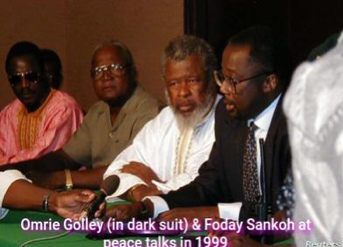
THE OMRIE GOLLEY STORY – EPISODE 7
OMRIE GOLLEY’S QUEST FOR PEACE – TRANSITION FROM OBSERVER TO LEGAL ADVISER/SPOKESMAN – MORAL AND ETHICAL DILEMMAS FOR PEACE
By Noellie Marionette-Chambertin
The repercussions of the return of the Kabbah Administration, in February 1998, after the failed AFRC coup of 1997, continued well into the early months of 1999. Accusations by Kabbah officials of named individuals being ‘rebel collaborators’ continued.

Reacting to a statement made on national radio on Thursday 1st January 1999, by Julius Spencer who was Minister of Information at the time, Dr Abass Bundu, now Speaker of the Sierra Leone Parliament, denied being an RUF supporter as alleged by Spencer, further rejecting the allegation that he had travelled at that time to Liberia to talk to the RUF leadership. Bundu in a written statement refuting the allegations stated:
”My stance on the crisis in Sierra Leone is well known. I do not, and will not support the use of violence in Sierra Leone as an instrument of political change in our country, nor as a means of ending the current conflict”
‘Culled from Peter Andersen: Sierra Leone Web 1996-2019’.
The same allegations by Spencer had been made against the late Dr John Karefa Smart and Omrie Golley, both of who also issued written statements refuting the allegations. Golley in his own statement stated that he was on Xmas holidays at his home in Croatia during this period, and denied having ever travelled to Liberia by this time, let alone speak to the RUF leadership there.
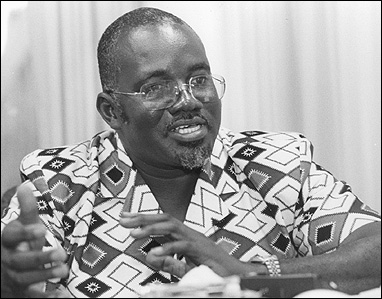
During the early hours of the 6th of January 1999, remnants of the AFRC/RUF combatants, who had retreated to the hinterlands of Sierra Leone after the expulsion of the Junta from the capital Freetown in February 1998, descended on Freetown in large numbers, capturing State House and other buildings in the Capital Freetown, and unleashing death and destruction in the capital and surrounding areas.
Many civilians lost their lives, and the destruction of property was on a massive scale. The state Penitentiary at Pademba Road in the centre of Freetown, was forced open, and most of the inmates, including those who had been imprisoned by the Kabbah Government upon their return to the capital after the failed coup, were released.
Former Late President Joseph Saidu Momoh, was one of those who had been proscribed by the returning Kabbah administration in 1998, as an AFRC supporter and subsequently charged to court and imprisoned. He was among those who escaped from Pademba Road Prison. He retreated to the hinterlands of Sierra Leone, where he in turn became a prisoner of remnants of the AFRC/RUF, returning to their military camps after the sacking of Freetown in January 1999.
The destruction of the capital and the loss of life was almost complete and total. During this period, Former President Tejan Kabbah left the capital. It was rumored at the time, that he had sought refuge on a British naval Frigate that happened to be within the territorial waters of Sierra Leone at the time, and had been stationed there for a while.

For a number of days the capital was in a desperate state. However with the support of ECOMOG forces, this attempt at insurrection was reversed, but the whole incident left a country and a people traumatized.
For Omrie Golley, this episode, added to those unfortunate incidents in the country which preceded it, left him completely perplexed. He considered the peace process at this time as being virtually non-existent. Great swathes of the country remained ungovernable, with the Government in control of the capital Freetown, and remnants of the RUF/AFRC militia operating in the surrounding towns and cities.
Golley’s main preoccupation was how the peace process could be resumed, even with the situation in the country as dire as it then was. He believed that he could play a positive role in the process by leveraging the contacts and emerging respect that had been building up between Golley and the RUF, with the ultimate goal of a lasting and sustainable peace.
In Golley, the fighting combatants saw an individual unconnected with any political party at the time, and also not part of any Government group. They felt that he was genuinely committed to a lasting sustainable peace Agreement which would end the fighting, and restore the country to peace and normalcy. They recognized the steps Golley had been taking by then to engage them and talk peace.
Golley had been contacted by the erstwhile leader of the RUF, Sam Bockarie, after the May 1997 coup, to assist the movement in engaging the services of a lawyer to seek the release of their Leader Corporal Foday Sankoh, who had been incarcerated in Nigeria. Sankoh was then transported to Sierra Leone, after Former President Kabbah returned to the Capital in early 1998. Bockarie informed Golley, that he had been told that the RUF would find it extremely difficult to engage the services of a legal practitioner in country, because of fear, and suggested to Golley, that he assist by recommending a number of firms in the sub-region or beyond. In fact a number of firms in Nigeria and Ghana had offered their services, but it had become apparent, that the Kabbah Government would not readily grant approval for any of these firms to be heard in the courts of Sierra Leone.
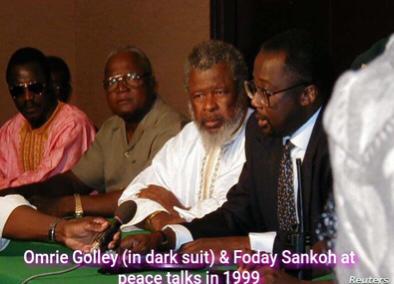
Not long afterwards however, to this request by Bockarie to Golley for Golley’s assistance in procuring a law firm to represent their leader and the interests of the RUF, was added another request, which was for Golley to assist them directly, in putting their case to the wider world, in response to what Bockarie termed the ‘massive demonization’ of the RUF by the Kabbah Government.
Given the state of affairs in the country at that time, this latest request to Golley, put him in a difficult position with immense personal and moral dilemmas. On the one hand, here was an organization that had been accused of massive atrocities against ordinary civilians in the villages towns and cities across the country.
Added to this, was the realization that this organization with its combatants spread throughout the country, engaging in continuing military operations, were in fact rudderless, with the absence of their Leader, and with reports additionally of their Militia engaging in raids, abductions, and overall violence that the Kabbah Government assisted by ECOMOG forces were unable to resist.
Golley was aware that the Kabbah Government had actively encouraged negative publicity against him and others that they considered collaborators of the rebel movement. Not a day went by during this period, without the name of Golley and others being mentioned and presented to the people as individuals guilty of working with the rebels, and associating them with atrocities being committed.
Pro -Government radio stations continuously blurted their names as being wanted by the Government. Concocted stories of Golley being an arms dealer, providing military equipment to the rebels from his base in Croatia, in return for diamonds from the rebels, and additional false propaganda, were reproduced by government controlled publications, creating further alarm and panic amongst the civilian population.
There was nothing however further from the truth.
Golley was unshakeable in his belief, that without another attempt at peace and reconciliation, the war would continue unabated, with the unfortunate civilian population bearing the brunt of these murderous activities.
In his continuing contact with the RUF, he (Golley) believed that he could make a positive lasting contribution to the peace process, by working constructively with the militia, encouraging them to move from the bush to the negotiating table in pursuance of peace. He believed that, having gone through untold suffering and anguish for months, his people deserved nothing less than peace. And if that meant going to talk to, and associate with the RUF, he was prepared to do that.
This is what ultimately moved Golley pursuing peace from the standpoint of being an observer, to acting as a legal adviser and spokesman of the RUF.
Fortunately for Golley however, international world opinion was, by early 1999, moving inexorably towards a peaceful settlement of the conflict in Sierra Leone. The erstwhile held view of moving decisively against the RUF militarily, became subsumed with a more practical solution, of bringing the warring parties to the peace table in pursuance of a political settlement.
Golley used this opportunity to actively promote the idea of a peace agreement, in line with what was now being promoted in Sierra Leone, to bring the war and the untold suffering of her people to an end. He (Golley) started accepting invitations from international news organizations like CNN, BBC, Radio France International, AFP, and other renowned outlets, and he used these opportunities to propound his views on the need for a political settlement, rather than the military prosecution of a war that the Kabbah Government appeared incapable of winning.
During this period, in the early months of 1999, a consensus also gradually started emerging and building up, amongst International World Bodies and Governments such as ECOWAS, the United Nations, sub regional Governments in West Africa, together with the Governments of the United States of America, France, the United Kingdom, Norway and others, of either wanting to explore, or supporting the idea of a peaceful settlement of the conflict.
Even with world opinion gradually moving towards a peaceful settlement of the conflict, Golley was fully aware of the need to be accepted as an interlocutor to an organization that become widely regarded as brutal. In addition, the nature of his work would require financial and moral support to effectively undertake this new assignment and situation.
On or around 14th January 1999, Golley travelled to Abidjan to meet with the ECOWAS Executive Secretary during this period, Lansana Kouyate, who recognized and supported the position of Golley as adviser and spokesman of the RUF in the pursuance of peace in Sierra Leone. He provided Golley, in the absence of any remuneration of any kind from the RUF, or any other body, with a $10,000 disbursement to assist him in this new role.
Golley was invited to engage the United States Government on the prospect for peace in Sierra Leone, and in late January 1999, the State Department facilitated his travelled to Washington to meet with State Department officials.
Testifying to the Sub Committee on Africa, Committee on Foreign Relations of the US House of Representatives, in March 23rd 1999, Salih Booker, of the Council on Foreign Relations, a US Government think tank, who had also invited Golley to present a paper, on the ongoing conflict in the country during his visit testified:
‘In late January 1999, the State Department facilitated a phone conversation between Sierra Leone President Kabbah, and Omrie Golley, the Legal Representative of the rebel RUF who was visiting Washington. That conversation led to a commitment on the part of both parties to the conflict to pursue a negotiated solution’.
The statement went on to mention the names of Ambassador Howard Jeter of the State Department and Rev Jesse Jackson in playing their role in pursuing peace. Golley had actively engaged both individuals during the process up until the signing of the Lome Peace Accord in July of 1999.
It was also during this visit to the United States in late January 1999, that Golley first met and engaged fellow Sierra Leonean Dr Sylvia Blyden. Dr Blyden was instrumental in facilitating a telephone conversation, acting as an interlocutor initially, between Golley and the former President of the Federal Republic of Nigeria, Olusegun Obasango , who was later to play a vital role in securing the peace process in Sierra Leone.
Golley was to make additional trips to Norway, France, Togo, Ivory Coast, Nigeria, Liberia, Burkina Faso, all in support of a renewed process which was to culminate with the Lome Peace Accord of July 1999.
The next episode will focus on the events leading up to and surrounding the signing of the Lome Peace Accord and the role of Omrie Golley in the process.
Note
For further enquiries on our episodes, please contact the writer:
Noellie Marionette-Chambertin
Phone number : +447535506716
Email : noelliechambertin@mail.com

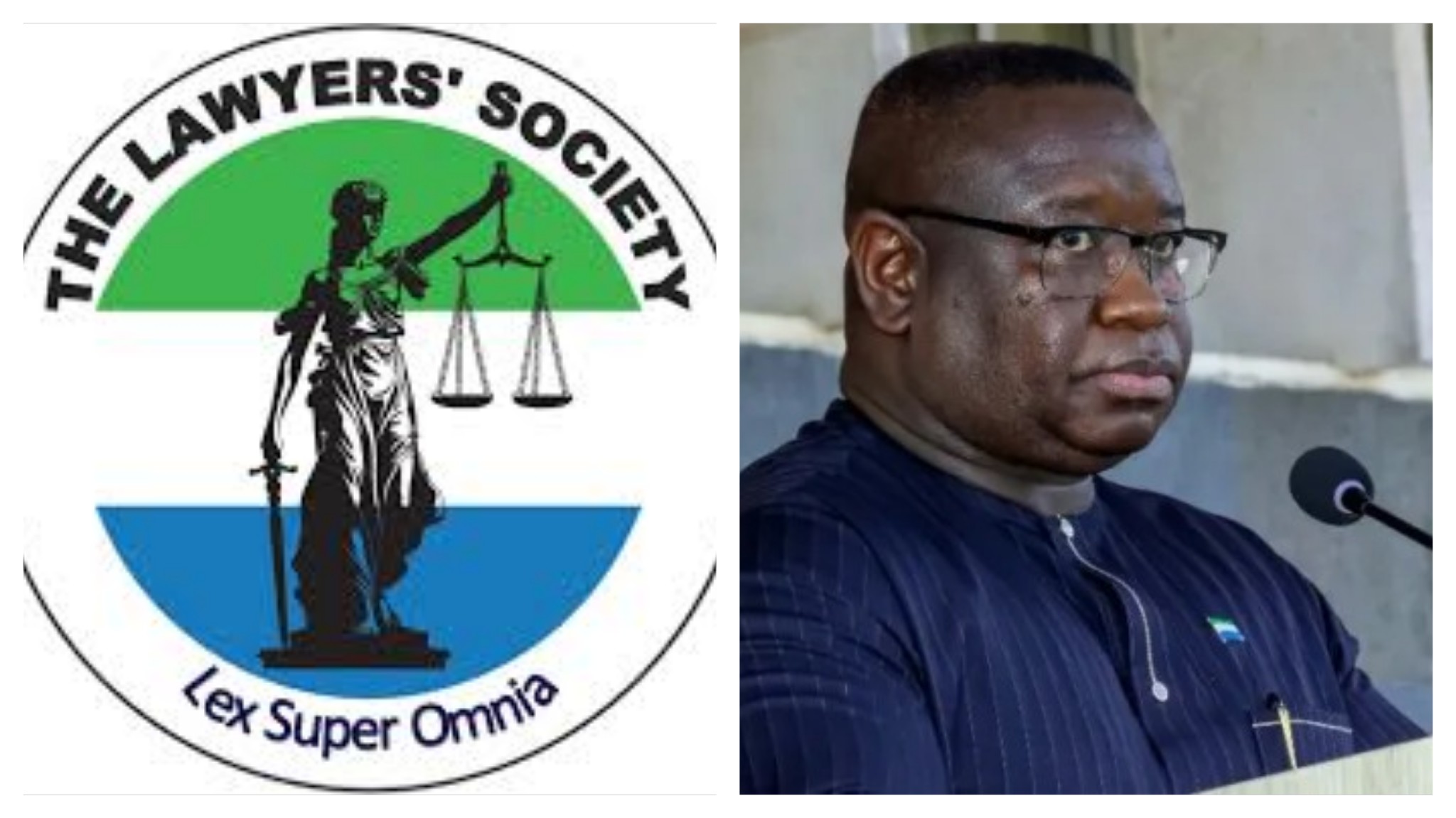

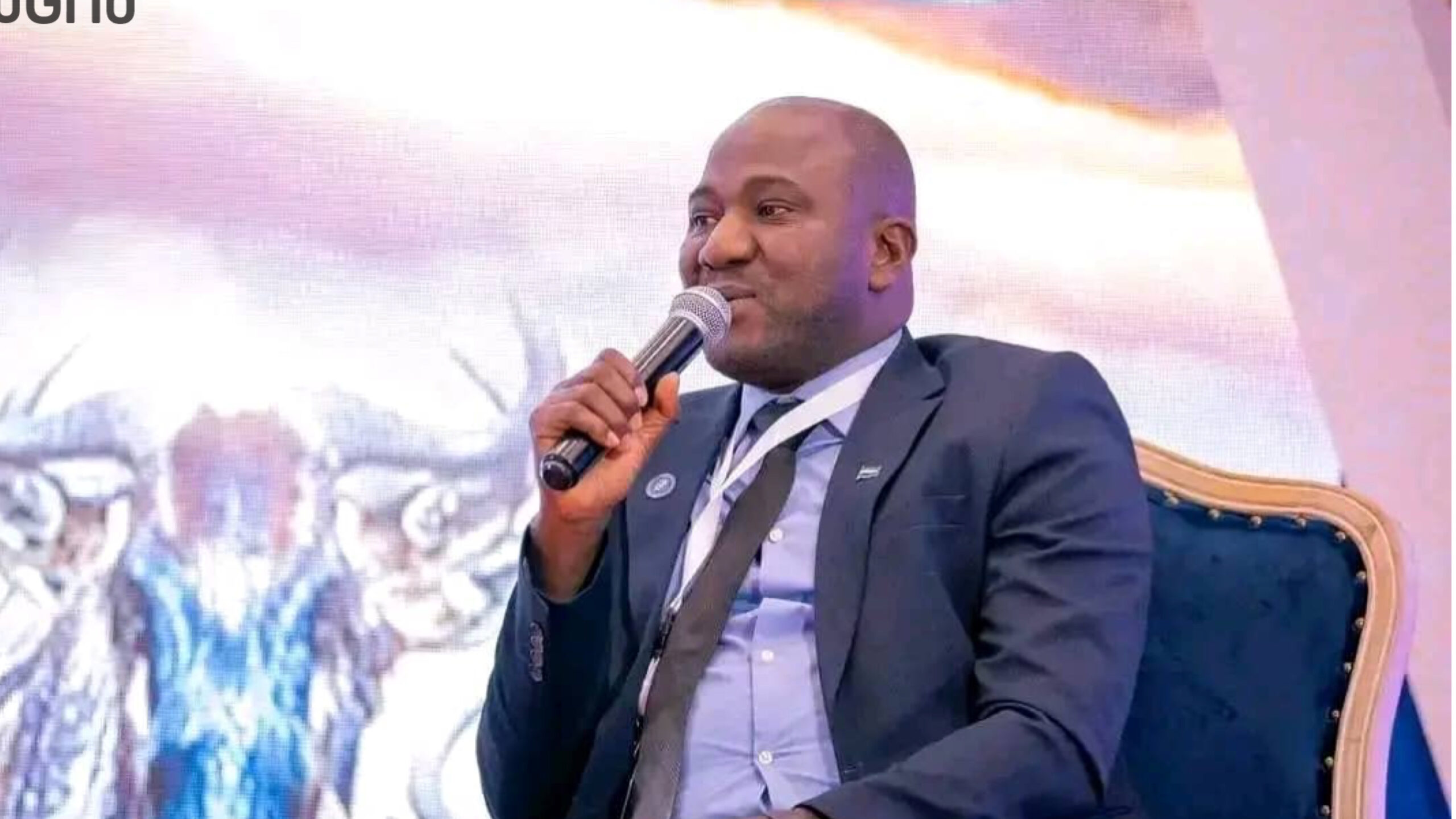
We thank God the true leader of peace ( Omerie GOLLEY is alive today despite all effort has been by the wicked and hypocrite politician to terminate his life
We still believe that it is Omerie GOLLEY to move Sierra Leone and the entire sierra leonean communities to their glory and land of destiny
We believe GOLLEY better than the rest